Yesterday morning, more than 1,000 schoolgirls gathered in Harlem’s legendary Apollo Theater to discuss a topic that’s been quite popular during the UN General Assembly this week: empowering girls. In partnership with Maybelline New York and The Harnish Foundation, Glamour and editor-in-chief Cindi Leive hosted “The Power Of An Educated Girl,” with a panel of some of the most influential women worldwide: First Lady of the United States Michelle Obama; founder of Charlize Theron Africa Outreach Project and U.N. Messenger of Peace Charlize Theron; former Australian Prime Minister Julia Gillard; and Nurfahada, a girl advocate from Plan International, to discuss the importance of educating girls and young women across the world—specifically, the new government-wide Let Girls Learn initiative and Glamour’s The Girl Project. In partnership with Care, Plan international USA, Girls Inc. and communities and schools, Glamour launched the initiative to help support girls’ education and supplies everything from safe transportation, to tuition, to school supplies.
Actress and activist Sophia Bush, who is also an advisory board member for The Girl Project, served as emcee and the day’s social media correspondent. A surprise performance ensued before panelists took to the stage, by Norwegian pop duo Nico & Vinz, who were welcomed by the fangirl cries of the crowd.
“This week as the U.N. General Assembly has gone on around us in New York City, something wonderful has happened,” opened Leive, who moderated the panel. “And that is that a lot of people have been talking about girls. Girls’ health, girls’ education, girls’ rights, talking about girls. This is crucial, but we want to do something a little different here today. We don’t just want to talk about girls, we want to talk to girls…We all want a chance to be great. For most of us that chance starts with education. And yet we know that there are 62 million girls around the world who want to got o school but can’t.”
Here we’ve rounded up some highlights from the panelists’ Q&A with the audience and girls around the world who tuned in via live-stream by AOL.
On #62milliongirls:
FLOTUS:
“For me this is personal. When I think about those 62 million girls who aren’t in school, I think about myself, I think about my daughters, because quite frankly all these girls…these are our girls. And I think about where I would be in my life if I didn’t work hard in school and have the opportunity to go to college and then on to law school. I wouldn’t be here…A huge part of Let Girls Learn is public awareness here in the U.S. We want you guys to know about these 62 million girls, and we want this to spur and inspire you to not take your education for granted. Because let me tell you, there are 62 million girls around the world who would give anything to be in your position.”
Charlize Theron:
“We all should have the right, and something as vital as education shouldn’t be left up to a lottery of geography or gender. It’s just not fair. I think most of the problems that we have in the world are because over half the population not having access to that education…The global health campaign has said that education is a social vaccine against HIV. In South Africa girls are eight times more likely to be infected with HIV than boys. And what that tells me is that girls are being left behind. In certain pockets of the world, including here sometimes, young women and girls are being treated as second and third class citizens.”
On the fear that doing well in school is unattractive:
CT:
“There is nothing sexier than a smart woman. We have been told to live by a certain mold, especially women, and it is time to break it. And it is up to us to do that. Stop waiting for men to do that. Look in the mirror and see yourself, and say, ‘I am sexy, I am attractive, I am smart, I am intelligent. I am powerful. I have a voice. I look cute in these jeans.’ That’s up to us. We have to take ownership. We can’t have boys designate that for us anymore.”
FLOTUS:
“If I worried about who liked me and who thought I was cute when I was your age, I wouldn’t be married to the President of the United States today! And lets just be clear. You don’t want to be with a boy that’s too stupid to know or appreciate a smart young lady.”
On choosing to get behind education, of all causes:
FLOTUS:
“[Nurfahada] is here in the U.S., she is sitting on the panel with the First Lady of the United States and she is holding her own. Now just imagine if she couldn’t get an education. What a waste that would be. But there are 62 million girls with that kind of potential. You don’t have to be the First Lady to have a voice. Right now you are probably influencing someone younger than you in your life. So tell them to stay in school, do your homework, don’t be late, get the best grades, compete with the boys, beat the boys, alright? Because you all are capable. We have to spread that word, and first and foremost we have to believe it to be true for ourselves. I learned that when I was young. I am worthy. And if I am worthy so are you.”
On what people should take away from the panel:
Nerfhada:
“Support this kind of program, or event. That will help girls to go to school without being afraid, without being ashamed or being traumatized because of what happened to her. I believe that we are a advocates in our own ways; that’s by how we live our lives.”
On how educating girls worldwide affects girls in the U.S.:
Julia Gillard:
“I want you to grow up in a peaceful and prosperous world. And evidence is clear the more time people spend in school, the more likely they are willing to find peaceful ways to resolve conflict and the more likely they are to support democracy and religious tolerance. For you and your future that means that nations you think of now as places of poverty and places of disorder could be on a path to peace and prosperity because we are educating the children, and particularly because we are educating the girls. The life journey of these 62 million girls matters to the world that you’re going to live in.”
On their own educations:
FLOTUS:
“I grew up on the southside of Chicago, a product of the public school system. I went to the neighborhood elementary school around the corner from my house. From the time I could remember, for whatever reason, probably because of my parents I knew that school was important, and I wanted to put 120% into it. I always wanted to be the top student. I wanted to talk, I wanted to raise my hand. And my parents, even though they never went to college, they always had that expectation for us. My brother and I were going to college, period. I also remember these wonderful teachers I had. And I learned to speak up for myself. I wanted desperately to be at a school where every student valued an education, where you weren’t treated like some strange nerd because you liked to read or you wanted to do well. And Whitney Young was that school for me. So I would get on a bus and ride for one and a half hours to get to this school, that’s how important it was to me. And I always loved writing. That is one thing I encourage you all to do. There is nothing that you can’t do if you know how to write and communicate well.”
On failure:
FLOTUS:
“Know that you will fail at things. Failure is an important part of your growth and resilience. Everybody on this stage has failed miserably over the course of their lives.”
CT:
“Nelson Mandela said, ‘We’re all going to fall down, it’s how you get up that matters.’ The heart and passion is so incredibly powerful. What I would encourage you all to do is to really listen to that. And I think sometimes, especially girls, we aim so much lower than what we’re really worth. You are worth it and you are valued. I’m sitting on this stage today a farm girl from a small farm community in South Africa. And the fact that I am here today is witness that if you dream big, no matter how ridiculous it is, it can happen, so why not?”
On what they would tell their high school selves:
CT:
“Oh boy, just don’t wear shoulder pads, what were you thinking? You have shoulders like a football player, don’t do that! Seriously, I would so love to go back and say to myself, ‘Slow down. Breathe. Don’t feel so rushed.’ I think when we’re younger we feel that time is going to run out. And we’re moving so fast that we’re not taking enough time to really think things through, to think long term, and to be kinder to ourselves. We’re rushing through this part of our life that only comes once. You’re only going to be this age once. It’s such a gift, slow down and enjoy it.”
JG:
I think I’ve got some fashion crimes too—don’t get the spiral perm, and it had a very long-lived era. I’d also say to really nurture a sense of self, who you really are. We live in a world with instant feedback and often it’s instantaneous criticism. And you don’t have to be in a publicly professional field like politics to feel the sting of that. It’s really important to work on who you know you are. That doesn’t mean you shouldn’t take on constructive advice that comes from people who care about you, but some of the poison that goes across social media after midnight when people have had a drink or two, that stuff is not constructive criticism, and just forget about it. Don’t let it get inside you. Don’t lose that sense of self.”
Nurfahada:
“Make every moment important. It can change your future and how [other people] look at you. Be yourself and every moment counts.”
FLOTUS:
“I don’t know about fashion…it was all bad. Just remember that life is long. From 1 to 60, look at this time frame. Now look at high school or middle school. Don’t sweat the small stuff in this little time period. Being a teenager is hard. It’s homework, and there’s so much of it, and your friends, and it’s bullying, and your mother is getting on your nerves! It feels so hard right now. And somebody said something, you’re not sure what to wear, you hate the way your hair looks every day, and you’ve got acne and you can’t fix it, you don’t have any money so you ask your parents and they always say no. This is what I hear. But this is just four or five years of your life. Don’t base what life is going to look like on this stuff. Don’t sweat the small stuff. What is important right now is who you’re going to be and how you’re developing that part of yourself. So go to school. Focus on your homework. Don’t worry about what your friends are saying that much. Because half these people you’re not gonna now when you’re 60. It doesn’t matter what they say or think right now. If you had a bad day, don’t take it to heart. Because you won’t even remember this day in five years from now. Don’t get so mad at school that you drop out. Don’t get so mad at your mother that you stop listening to her. You don’t want to look back when you’re 60 and regret that you just didn’t have the patience to push through these four years of mess. Freedom comes later. Now you invest. Now you put up with. Now you be patient. Trust me, you don’t want to be a 60-year-old woman with no options.”
- NEW YORK, NY – SEPTEMBER 29: Vice President Marketing at Maybelline, Anne Marie Nelson-Bogle speaks onstage during Glamour “The Power Of An Educated Girl” panel at The Apollo Theater on September 29, 2015 in New York City. (Photo by Dimitrios Kambouris/Getty Images for Glamour)
- NEW YORK, NY – SEPTEMBER 29: First Lady of the United States Michelle Obama joins Glamour “The Power Of An Educated Girl” panel at The Apollo Theater on September 29, 2015 in New York City. (Photo by Dimitrios Kambouris/Getty Images for Glamour)
- NEW YORK, NY – SEPTEMBER 29: The Girl Project advisory board member Sophia Bush (L) and Glamour’s Editor-in-Chief Cindi Leive join Glamour “The Power Of An Educated Girl” panel at The Apollo Theater on September 29, 2015 in New York City. (Photo by Dimitrios Kambouris/Getty Images for Glamour)
- NEW YORK, NY – SEPTEMBER 29: Founder of Charlize Theron Africa Outreach Project and U.N. Messenger of Peace Charlize Theron joins Glamour “The Power Of An Educated Girl” panel at The Apollo Theater on September 29, 2015 in New York City. (Photo by Dimitrios Kambouris/Getty Images for Glamour)
- NEW YORK, NY – SEPTEMBER 29: Nico & Vinz perform onstage during the Glamour “The Power Of An Educated Girl” panel at The Apollo Theater on September 29, 2015 in New York City. (Photo by Dimitrios Kambouris/Getty Images for Glamour)
- NEW YORK, NY – SEPTEMBER 29: President and CEO at The ApolloTheater, Jonelle Procope speaks onstage during the Glamour “The Power Of An Educated Girl” panel at The Apollo Theater on September 29, 2015 in New York City. (Photo by Dimitrios Kambouris/Getty Images for Glamour)
- NEW YORK, NY – SEPTEMBER 29: Glamour’s Editor-in-Chief Cindi Leive, Girl ambassador from Plan International Nurfahada, Founder of Charlize Theron Africa Outreach Project and U.N. Messenger of Peace Charlize Theron join Glamour “The Power Of An Educated Girl” panel at The Apollo Theater on September 29, 2015 in New York City. (Photo by Dimitrios Kambouris/Getty Images for Glamour)
- NEW YORK, NY – SEPTEMBER 29: Lands’ End CEO ?Federica Marchionni joins Glamour “The Power Of An Educated Girl” panel at The Apollo Theater on September 29, 2015 in New York City. (Photo by Dimitrios Kambouris/Getty Images for Glamour)
- NEW YORK, NY – SEPTEMBER 29: President of Maybelline David Greenberg and Glamour’s publisher and CRO, Connie Anne Phillips join Glamour “The Power Of An Educated Girl” panel at The Apollo Theater on September 29, 2015 in New York City. (Photo by Dimitrios Kambouris/Getty Images for Glamour)
- NEW YORK, NY – SEPTEMBER 29: The Girl Project advisory board member Sophia Bush speaks onstage during Glamour “The Power Of An Educated Girl” panel at The Apollo Theater on September 29, 2015 in New York City. (Photo by Dimitrios Kambouris/Getty Images for Glamour)
- NEW YORK, NY – SEPTEMBER 29: The Harnisch Foundation’s Lindsey Taylor Wood (L) and Jenny Raymond join Glamour “The Power Of An Educated Girl” panel at The Apollo Theater on September 29, 2015 in New York City. (Photo by Dimitrios Kambouris/Getty Images for Glamour)
- NEW YORK, NY – SEPTEMBER 29: (L-R) Former Australian Prime Minister Julia Gillard, Founder of Charlize Theron Africa Outreach Project and U.N. Messenger of Peace Charlize Theron and First Lady of the United States Michelle Obama join Glamour “The Power Of An Educated Girl” panel at The Apollo Theater on September 29, 2015 in New York City. (Photo by Dimitrios Kambouris/Getty Images for Glamour)
- NEW YORK, NY – SEPTEMBER 29: Glamour’s Editor-in-Chief Cindi Leive (R) led a panel discussion with Founder of Charlize Theron Africa Outreach Project and U.N. Messenger of Peace Charlize Theron, First Lady of the United States Michelle Obama and Girl ambassador from Plan International Nurfahada during Glamour “The Power Of An Educated Girl” at The Apollo Theater on September 29, 2015 in New York City. (Photo by Dimitrios Kambouris/Getty Images for Glamour)
- NEW YORK, NY – SEPTEMBER 29: Girl ambassador from Plan International Nurfahada joins Glamour “The Power Of An Educated Girl” panel at The Apollo Theater on September 29, 2015 in New York City. (Photo by Dimitrios Kambouris/Getty Images for Glamour)
- NEW YORK, NY – SEPTEMBER 29: Former Australian Prime Minister Julia Gillard joins Glamour “The Power Of An Educated Girl” panel at The Apollo Theater on September 29, 2015 in New York City. (Photo by Dimitrios Kambouris/Getty Images for Glamour)
- NEW YORK, NY – SEPTEMBER 29: Founder of Charlize Theron Africa Outreach Project and U.N. Messenger of Peace Charlize Theron joins Glamour “The Power Of An Educated Girl” panel at The Apollo Theater on September 29, 2015 in New York City. (Photo by Dimitrios Kambouris/Getty Images for Glamour)
- NEW YORK, NY – SEPTEMBER 29: Glamour’s Editor-in-Chief Cindi Leive (R) led a panel discussion with Former Australian Prime Minister Julia Gillard, Founder of Charlize Theron Africa Outreach Project and U.N. Messenger of Peace Charlize Theron, First Lady of the United States Michelle Obama and Girl ambassador from Plan International Nurfahada during Glamour “The Power Of An Educated Girl” at The Apollo Theater on September 29, 2015 in New York City. (Photo by Dimitrios Kambouris/Getty Images for Glamour)

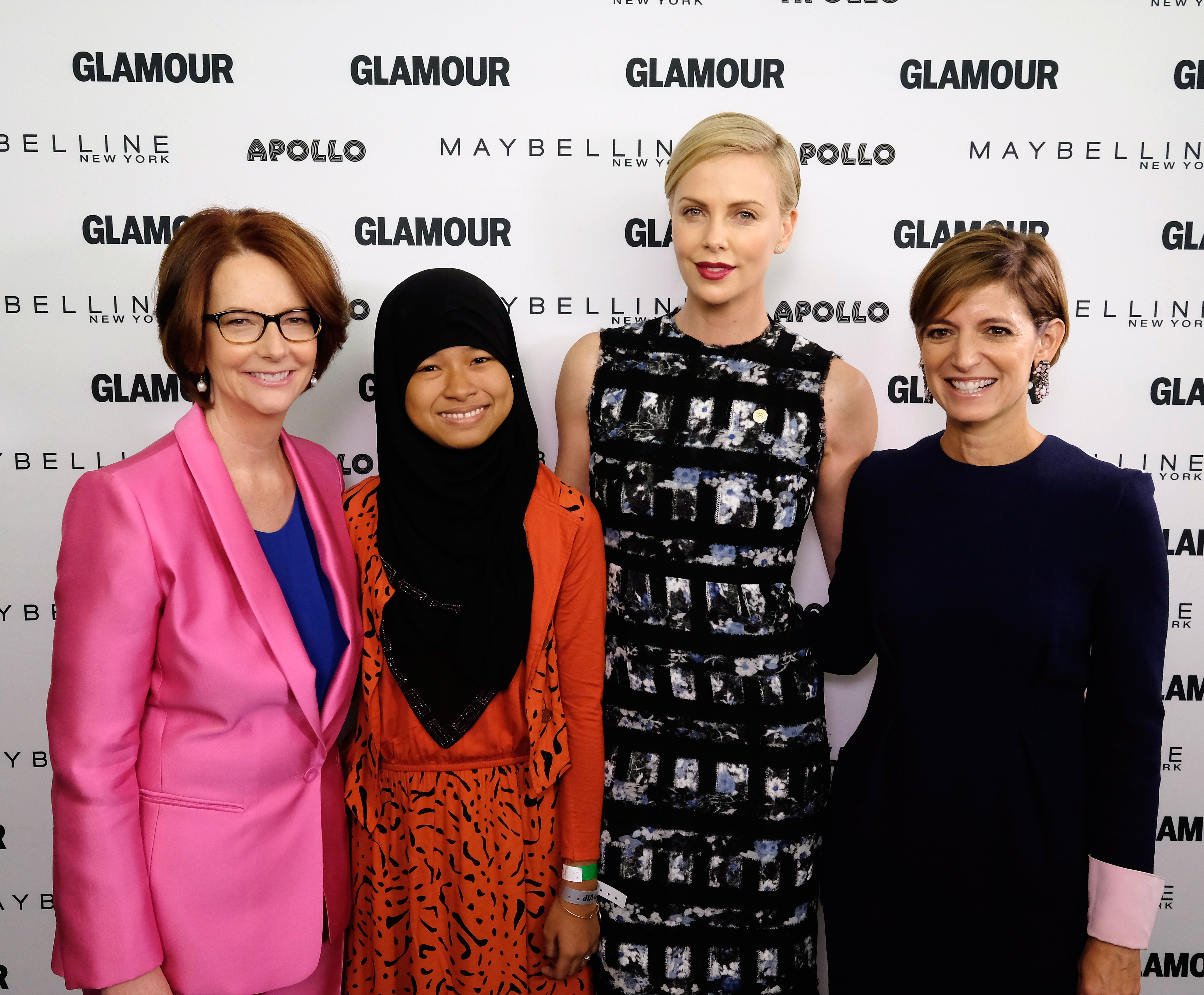
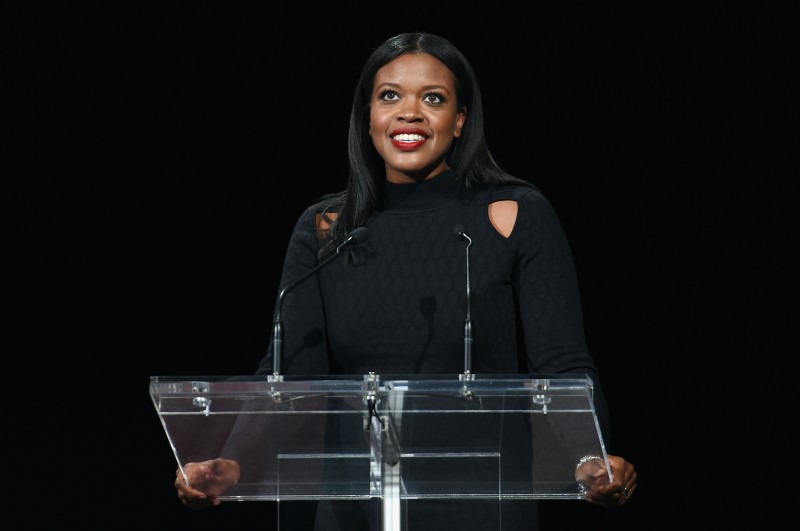
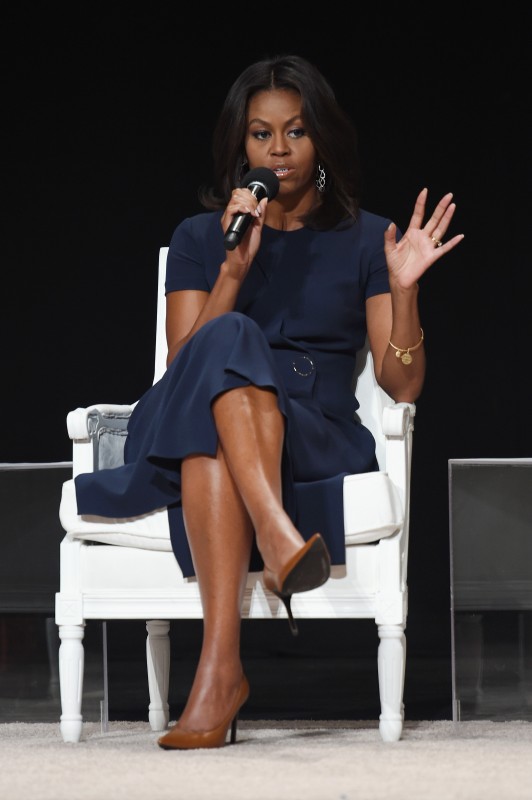
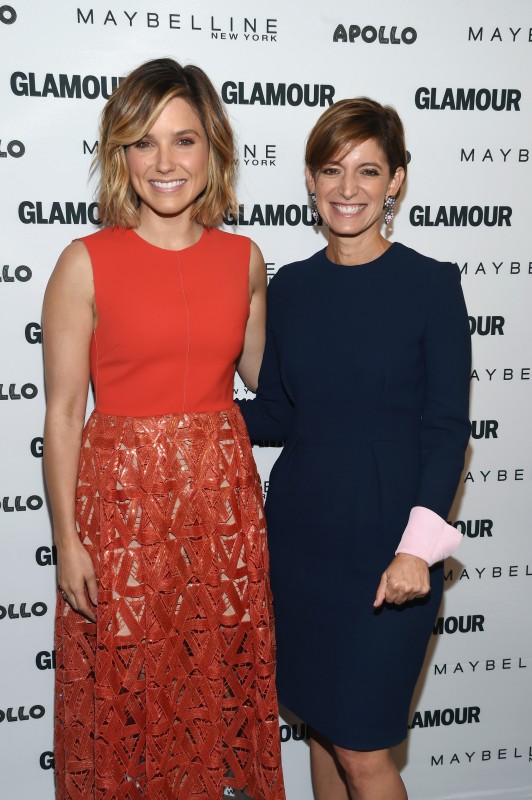
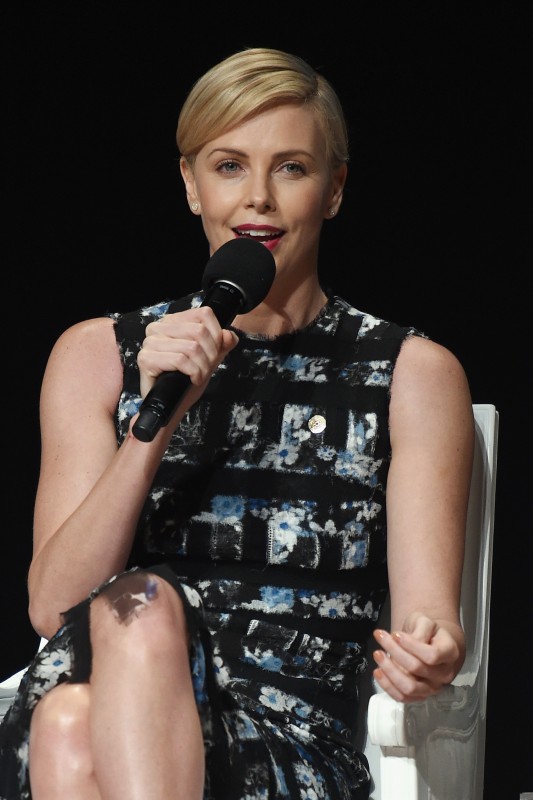
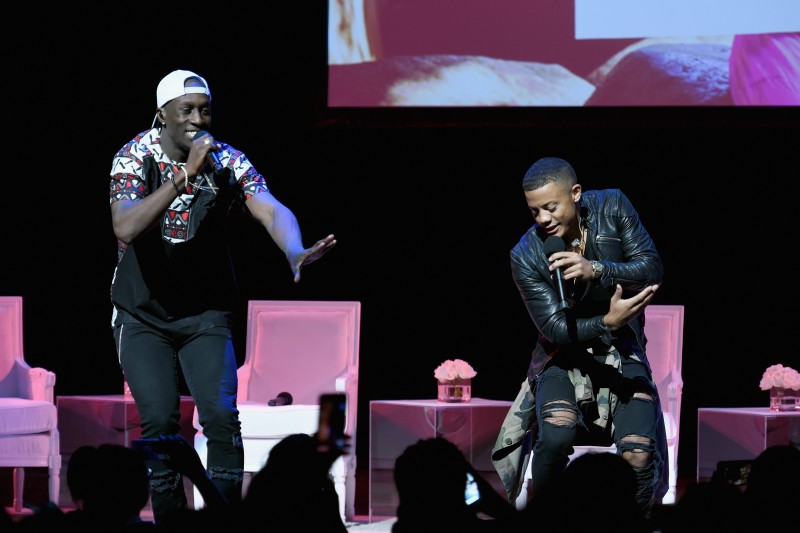

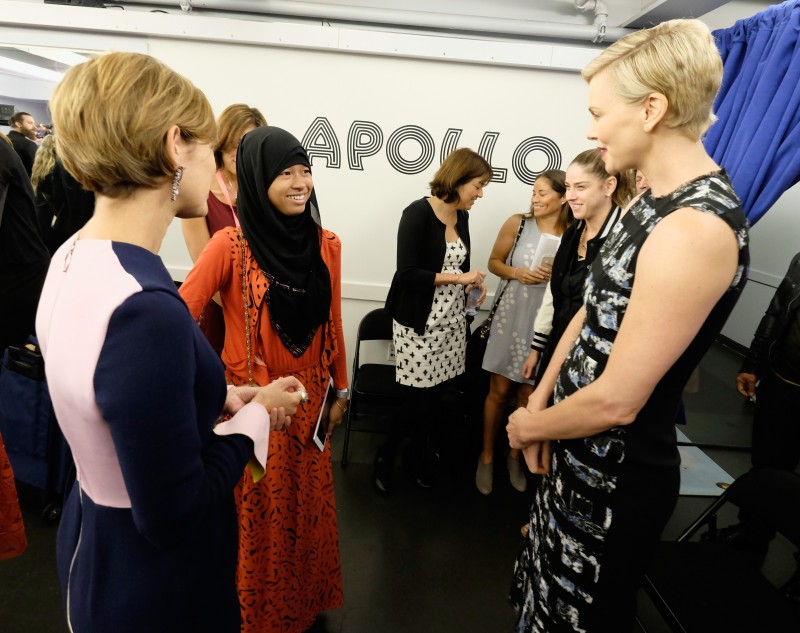



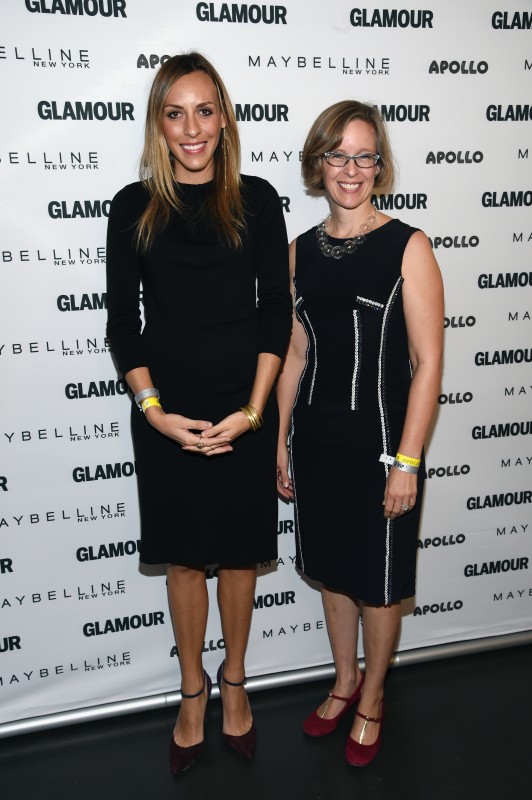

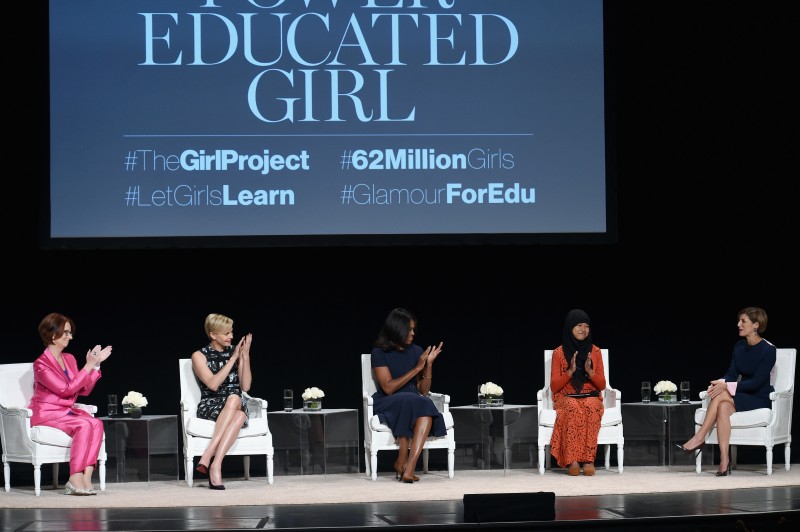
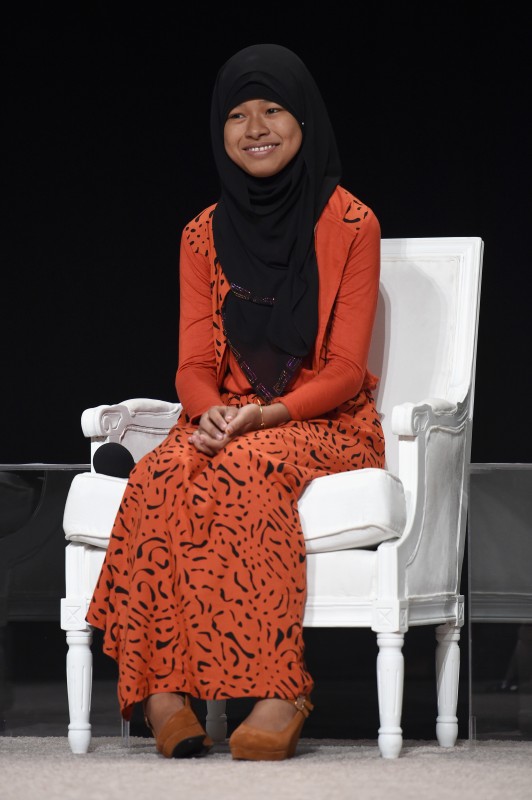

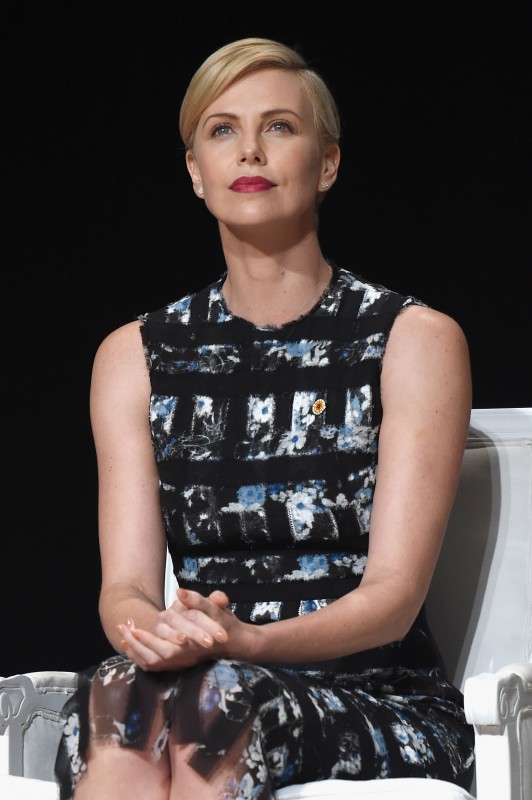
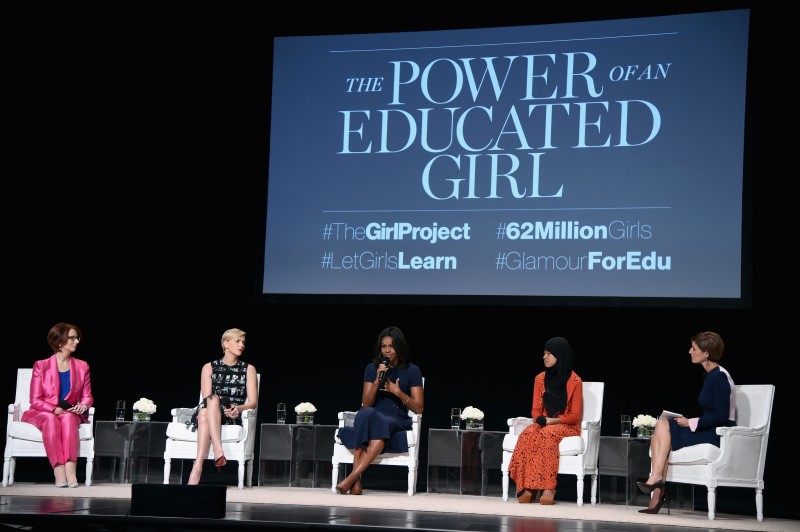
2 comments
Girls are empowered by hormones and nature to have children.
Ask any mother if they either want a career or children. The answer is obvious.
If the answer is a career, then why are there 7billion people on the Earth and growing
Well after Julia did not stand up for women in the FATA the guys that shot Malia in the she supported Sharia. Bush era is gone, back to the School of America’s, old Washington, Nicaragua. That is why she couped, “you will never be PM”. That is what you see in Syria with women, slaves,rape. School of America’s.